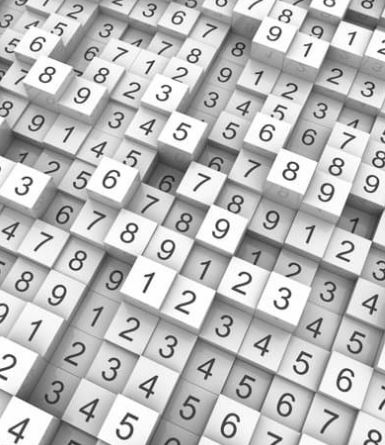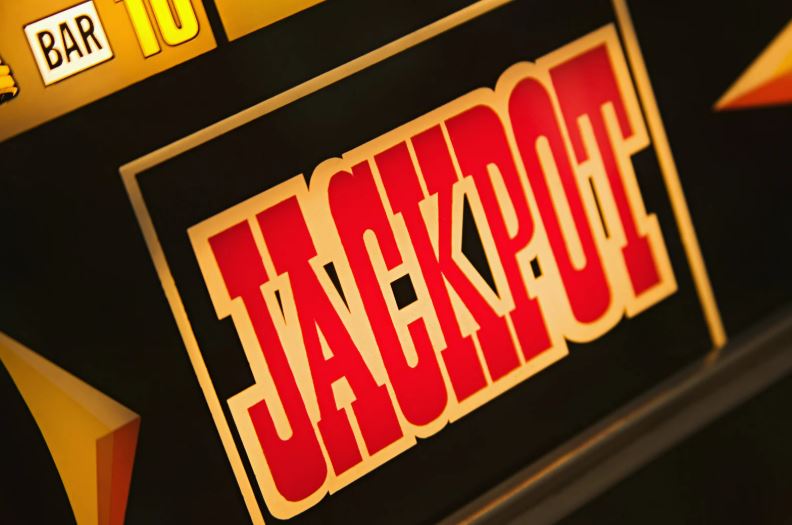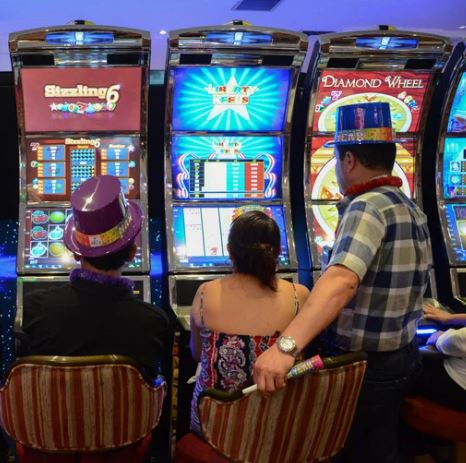
How To Tell If A Slot Machine Is About To Pay Out
Slot machines remain a popular form of entertainment, offering engaging gameplay and the possibility of a significant return. For many players, part of the appeal lies in the anticipation—wondering whether the next spin might lead to a notable outcome.
This curiosity often leads to questions: is it possible to recognise when a slot machine is likely to pay out? Do certain signs or patterns indicate a win might be coming? Or are such ideas simply based on speculation?
Below, we are going to take a closer look at how slot outcomes are determined, explore common theories around machine behaviour, and examine how jackpots are triggered.
What Determines When A Slot Machine Pays Out?

For players, the outcome of a spin can feel instant—symbols land, and the result is clear within seconds. However, the decision has already been made before the reels come to a stop. What looks like a random spin is actually the final display of a process that takes place in the background.
Whether playing at a physical machine in a casino or on a mobile device, the same system is at work. It doesn’t matter how long a game has been played or how many spins have taken place beforehand—each result is generated independently, through a mechanism built into the machine.
At the centre of this process is something called a Random Number Generator (RNG). Every slot machine is equipped with one. Its role is to generate a constant stream of number sequences—millions every second. When a player presses the spin button, the machine instantly locks in a sequence, and that determines what will appear on the reels.
The sequence is then translated into symbols, and if those symbols match a winning combination as described in the game’s paytable, a payout is given. The RNG operates continuously, even when the machine is not being used, and cannot be influenced by anything a player does.
There’s also another element that can shape how a slot game behaves overall, particularly in how often or how significantly it might reward players. This concept—referred to as volatility—will be briefly mentioned in the next section.
Do Slot Machines Have A Payout Schedule?
Some players suspect that slot machines follow a pattern, perhaps paying out more at specific times or after a certain number of spins. This idea is very common, but not accurate.
For example, there’s a popular belief that machines might pay out more at night. It may appear this way, especially if you’ve noticed more people winning in the evening. But this has less to do with the machine and more to do with the number of people playing at that time.
In the UK, slot outcomes are required to be entirely unpredictable. Regulations ensure every spin is decided independently and cannot be influenced by time of day, the amount of money inserted, or how long someone has been playing.
The same RNG mentioned earlier is responsible here, too. Regardless of the time or place, this system makes sure outcomes cannot be anticipated or influenced.
Now, let’s circle back to volatility, mentioned earlier. This term refers to how a slot is designed to behave in theory. A low-volatility slot might produce more frequent but smaller wins, while high-volatility slots tend to offer larger potential prizes, though less often. That said, this is a design characteristic rather than a rule—every spin is still independently decided by the RNG.
Play Slots & Online Casino Games
Do Slot Machines Have To Pay Out When They Get Full?
Some players might wonder whether a physical slot machine eventually reaches a point where it just has to pay out. The idea here is that if a machine holds too much money, a payout becomes inevitable. This is a misconception.
Slot machines are built with ample capacity to handle funds, and in practice, they are regularly emptied by staff. It’s extremely rare for a machine to get close to full. But even if it did, it wouldn’t affect the outcome of a spin.
That outcome still comes down to the RNG. Even progressive jackpot slots—where the prize fund grows over time as more players participate—use this same process. The increasing value of the prize may make the game more appealing, but it doesn’t alter how or when the jackpot is triggered.
In the case of online slots, the concept of a machine being “full” doesn’t apply at all.
What Triggers The Jackpot On A Slot Machine?

It might be tempting to think that there might be signs a jackpot is imminent—some sort of indicator or clue. But the mechanism for awarding jackpots is just as automated and unpredictable as for smaller wins.
Progressive jackpots, which grow larger with every spin made across a network of machines or players, can reach impressive totals. When that number climbs to a substantial level, some players feel it’s “due” to hit soon. However, the ever-increasing total does not bring the machine any closer to awarding it.
A jackpot win is simply another outcome selected by the RNG. It’s no different from any other result—it just happens to be the one that delivers the top prize.
Can You Tell If A Slot Machine Is About To Hit?
There are a few theories you might hear from seasoned slot players—things they say to help them gauge whether a slot is about to produce a win. But these ideas often stem from misunderstanding how slot machines actually work.
Take, for example, the idea that a machine showing a “reel wiggle” is about to release a big prize. This motion is purely visual—it’s programmed into the game to keep things exciting. It doesn’t reflect anything about upcoming outcomes.
Every spin is entirely disconnected from the one before. A slot machine doesn’t track how many times it has or hasn’t paid out recently. The next result is decided only when the player presses spin.
And that includes progressive jackpots, too. Some players may study the jackpot amount and try to predict when it will land. While a rising total may seem like a clue, it’s not linked to any specific threshold. It could drop at any time, or continue growing.
Does Lurking Slot Machines Work?

You may have noticed players hovering nearby in casinos, watching others closely. These “lurkers” often believe that jumping on a machine right after someone’s losing streak will give them a better chance of a win. It’s a familiar tactic—but it’s built on flawed thinking.
The idea hinges on the belief that machines become “ready” to pay out after a series of losing spins. But as we’ve seen, slot outcomes are not cumulative. Each spin has nothing to do with the last. A machine could, theoretically, produce two jackpot wins in a row—or go an extended period without one.
So, while lurking is something that happens in real casinos, there’s no factual support behind the idea that it increases your chances. Watching someone else’s gameplay doesn’t provide any useful information about what might happen next.
If you choose to play slots, keep in mind that every spin is random and independent of the last. Always keep responsible gambling practices in mind and never wager more than you are willing to lose.
**The information provided in this blog is intended for educational purposes and should not be construed as betting advice or a guarantee of success. Always gamble responsibly.






























































